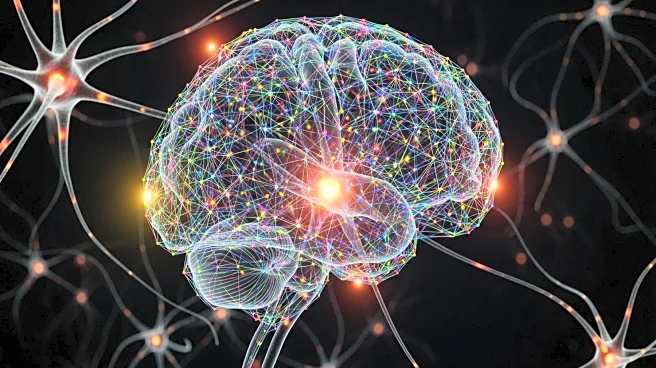What's Happening?
Recent neuroscience research has explored the brain activity associated with changing one's mind, providing insights into the cognitive processes involved. The study highlights the concept of metacognition, which refers to the psychological and biological processes that inform individuals about their performance on tasks. Researchers have found that changes of mind are often triggered by low confidence in initial choices and that metacognitive sensitivity plays a role in accurately gauging whether to change one's mind. The research also suggests that brain activity can predict changes of mind seconds before they occur, offering potential for improving decision-making quality.
Why It's Important?
Understanding the brain activity linked to changing minds has significant implications for various fields, including health and defense, where decision-making is critical. By harnessing this knowledge, professionals in sensitive roles could be trained to make better choices, potentially improving outcomes in high-stakes situations. The research also sheds light on the cognitive effort required to analyze initial choices, suggesting that frequent changes of mind may be cognitively demanding. This understanding could influence how decisions are approached in everyday life and professional settings, emphasizing the importance of metacognitive processes.
What's Next?
Future research may focus on identifying specific brain activity markers that predict correct changes of mind, which could be used to train individuals to make better decisions. This could lead to advancements in professional training programs, particularly in fields where decision-making is crucial. Additionally, the findings may influence how choices are presented to consumers, potentially reducing the cognitive burden associated with decision-making and improving satisfaction.
Beyond the Headlines
The study of changes of mind raises questions about the social and psychological implications of decision-making. Frequent changes of mind may be perceived as undesirable in interpersonal relationships, affecting social integration. Understanding the balance between cognitive effort and decision-making quality could lead to a reevaluation of how choices are made and the value placed on consistency versus adaptability.









